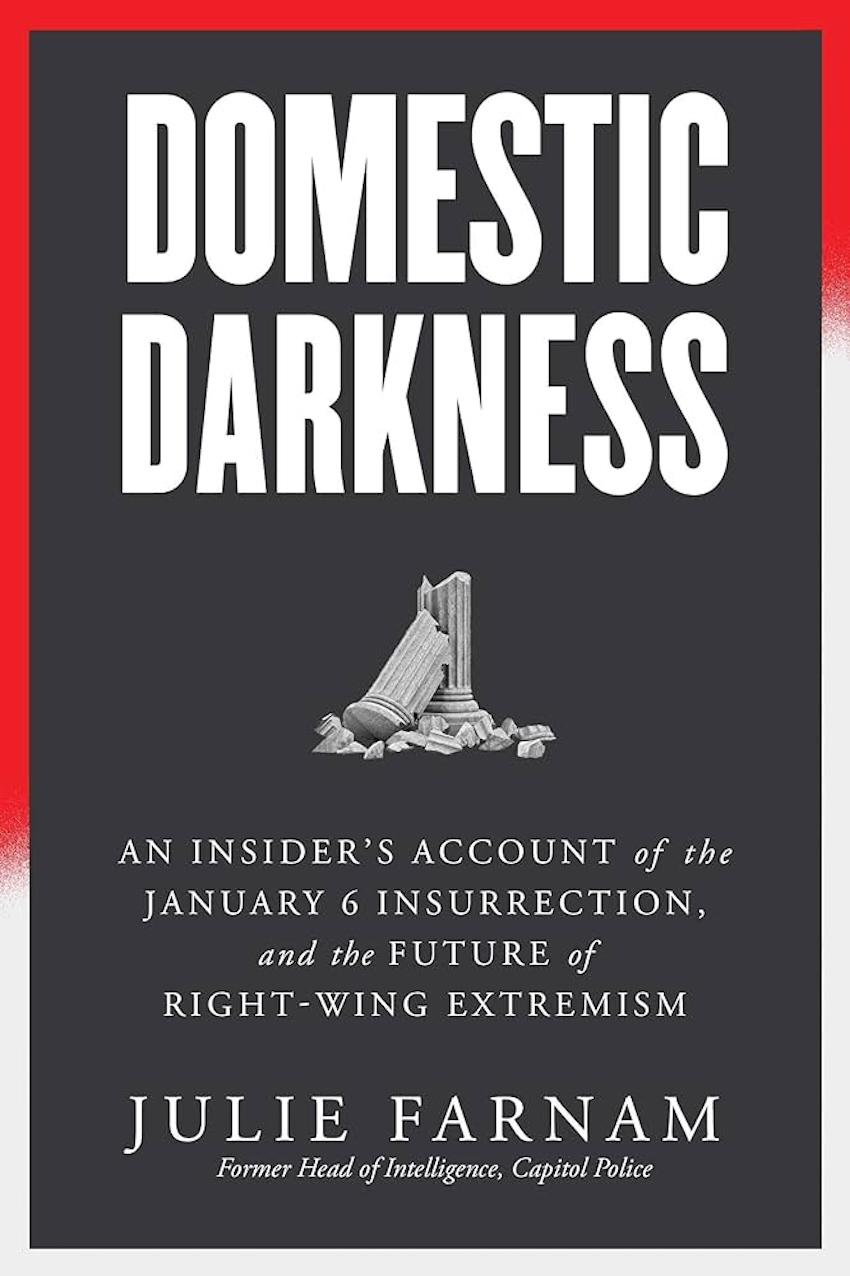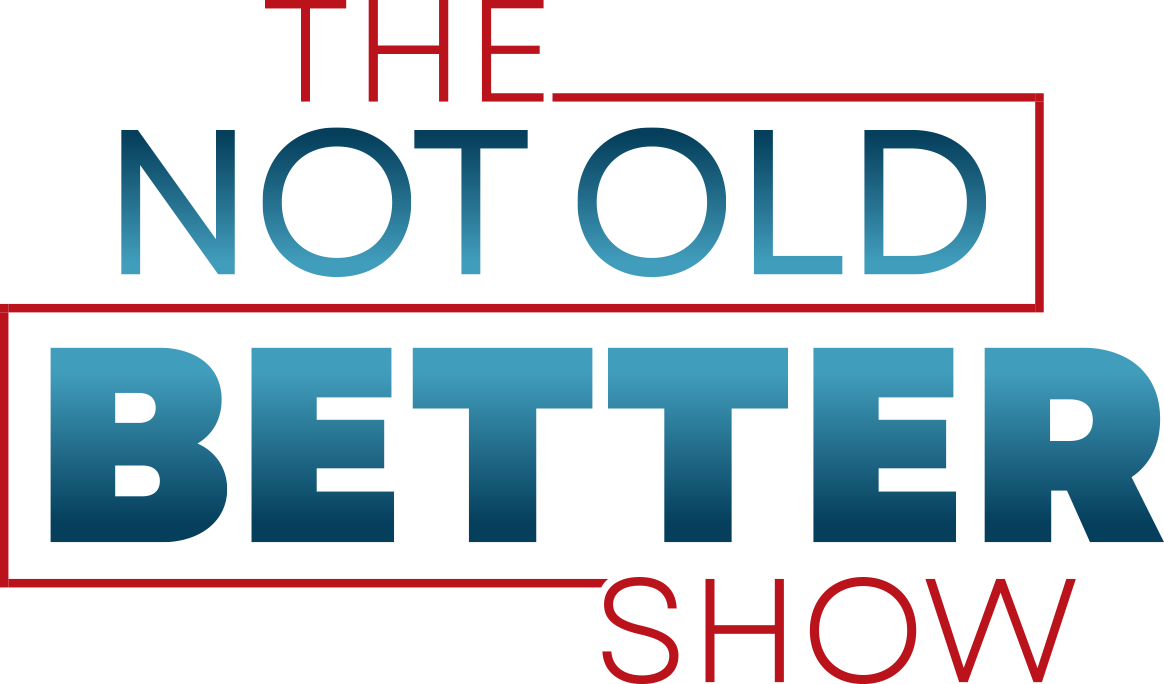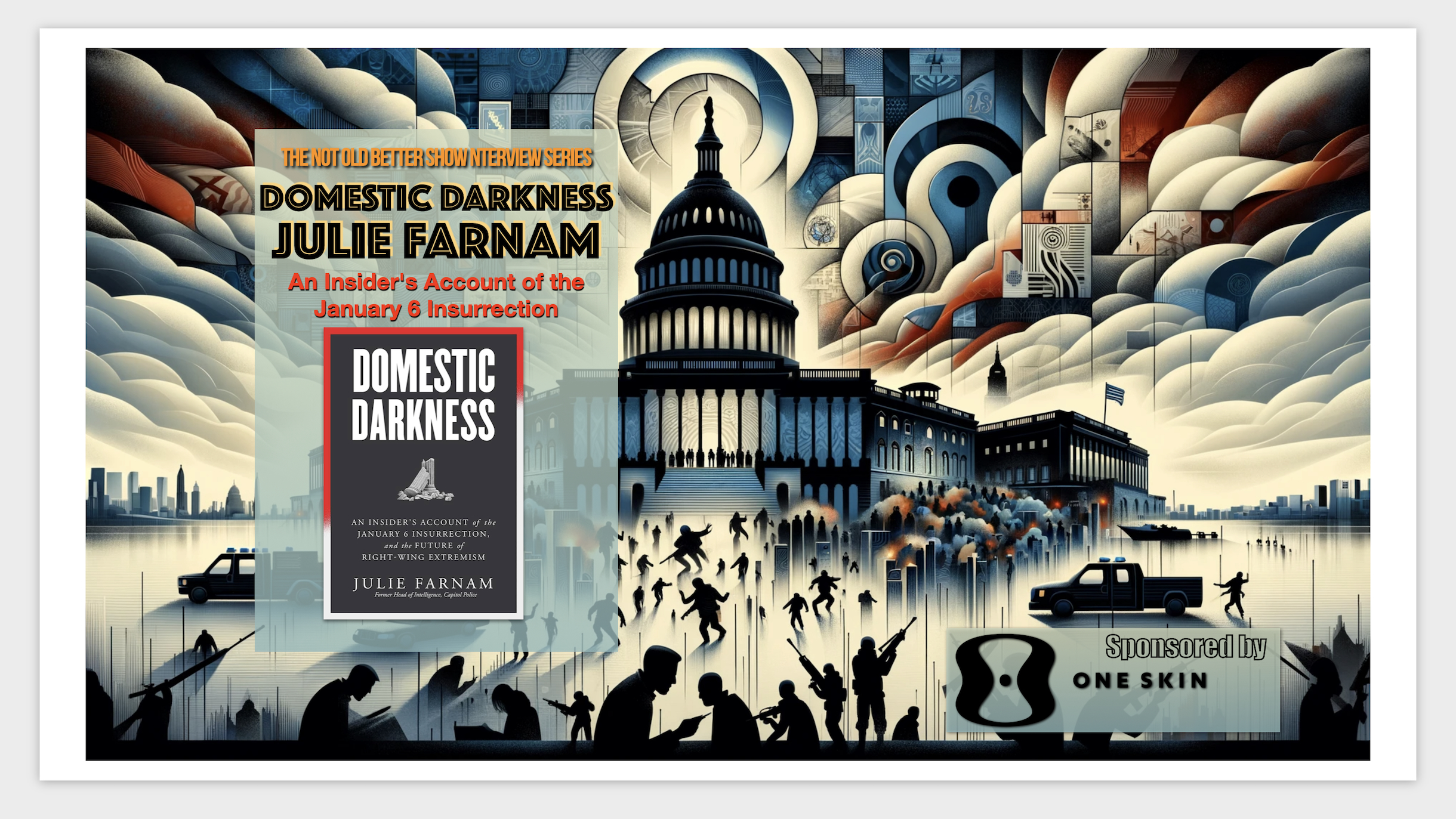The Not Old Better Show, Author Interview Series
I’m Paul Vogelzang, and your listening to The Not Old Better Show on radio and podcast. Today’s show is brought to you by OneSkin. Once again, the Not Old Better Show is bringing to you another episode that resonates with our audience and furthers our commitment to understanding and navigating the complexities of our times. Remember, aging is a privilege. It’s where your power is, and it’s where your strength lies.
 I’ve been a radio journalist for a decade, celebrating my tenth year this year with you, and I love what I do to bring compelling, interesting, action-oriented stories to you all in the 60+ age range, including your families. I’ve always tried to remain positive in my storytelling despite how negative, divisive, and depressing the news can sometimes be. I know from your emails and correspondence with me that you all want to remain positive but still be informed and engaged with today’s issues.
I’ve been a radio journalist for a decade, celebrating my tenth year this year with you, and I love what I do to bring compelling, interesting, action-oriented stories to you all in the 60+ age range, including your families. I’ve always tried to remain positive in my storytelling despite how negative, divisive, and depressing the news can sometimes be. I know from your emails and correspondence with me that you all want to remain positive but still be informed and engaged with today’s issues.
The Not Old Better Show tackles tough yet positive topics that speak to our community, speaks to the subject of aging, challenge you, help you feel more empathy, and empower you to become better. So, join me as we talk about Better™ here on The Not Old Better Show on radio and podcast.
Today, Domestic Darkness: An Insider’s Account of the January 6 Insurrection, and it was time to fight or die.
That’s our guest today, author Julie Farnam, a former member of the US Capital Police who’s just read from her new book, Domestic Darkness: An Insider’s Account of the January 6 Insurrection. You can hear it in her voice there. Despite the three years since its occurrence, Julie Farnam, from the US Capital Police, still feels the heartbreak, both personally and for the United States. Our nation’s democracy faced a harrowing challenge. January 6, 2021, marked a day of turmoil and terror as a white supremacist mob, fervent in their attempts to “Stop the Steal,” stormed the U.S. Capitol. This was not just an assault on a building; it was an assault on the very fabric of our democracy—the peaceful transfer of presidential power. In defending the Capitol, five valiant Capitol police officers tragically lost their lives, and nearly 140 others sustained severe, life-altering injuries.
 We talk today to Julie Farnam about that day: it was terrifying. Not just for the immediate danger it presented, but for the stark revelation of our vulnerabilities. Julie Farnam observed, almost in a dissociated state, as the emblem of our country’s democracy came under attack from its own people. The screams, the fear, the chaos—Julie Farnam says it was like watching a nightmare unfold in broad daylight. Even now, three years later, the full impact of what transpired on that chaotic day, even from a couple blacks away, feels elusive, like a dark cloud that she can’t quite escape.
We talk today to Julie Farnam about that day: it was terrifying. Not just for the immediate danger it presented, but for the stark revelation of our vulnerabilities. Julie Farnam observed, almost in a dissociated state, as the emblem of our country’s democracy came under attack from its own people. The screams, the fear, the chaos—Julie Farnam says it was like watching a nightmare unfold in broad daylight. Even now, three years later, the full impact of what transpired on that chaotic day, even from a couple blacks away, feels elusive, like a dark cloud that she can’t quite escape.
Especially disconcerting was that Julie Farnam had seen the signs and read the undercurrents of discontent and danger brewing. Julie Farnam tried to warn the leadership at the Capitol Police—the Capitol Police needed to be prepared to take this threat seriously. But Julie Farnam’s words, mired in a system that often overlooked the insights of a woman, fell on deaf ears.
As we reflect on the current state of extremist groups in America, there is a thought mixed with concern and a deep sense of urgency. In the aftermath of January 6th, it has become increasingly clear that groups like Q Anon, Proud Boys, and Oath Keepers, which have always lurked in the shadows of our society, are evolving in both strategy and visibility. For years, these groups existed on the fringes, their hateful ideologies and calls for violence echoing within their closed circles.
However, what has become alarmingly apparent in recent times is their transition into the mainstream. This shift has been fueled, in part, by certain individuals in positions of power who have unwittingly or otherwise given these groups a platform and a voice that they have never had before. This emboldening of extremist groups is not just a matter of concern; it represents a significant threat to the fabric of our society.
In the wake of January 6th, the landscape of these groups has undergone a noticeable change. While some, like the Oath Keepers, have seen a decline in their activities, others, particularly white supremacist groups, have found new ways to thrive.
In her book, Domestic Darkness, Julie Farnam admits to a less than savory relationship with a DC cop, who’s since been arrested and charged with assisting the Proud Boys on January 6. Julie is candid about this relationship with DC Police, Metropolitan Police Department, Lieutenant Shane Lamond. Julie Farnam has faced many hardships in writing this book, and the personal consequences in coming forward have been significant. Julie Farnam is no longer with the Capitol Police. Her professional life and career then, and your personal life now have been tough as a whistleblower after coming forward. Based on Julie Farnam’s experience and the insights from January 6, there are measures and tactics to consider that are necessary to prevent similar events in the future, especially with the 2024 presidential election approaching. We’re approaching the 2024 presidential election. Some of Julie Farnam’s investigative work currently is thinking about what might happen in the future in various realms. Perhaps the presidential election is one of those areas. Just what measures do you believe are necessary in order to prevent similar events that might be related to a presidential election?


